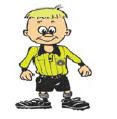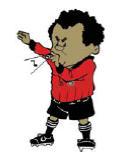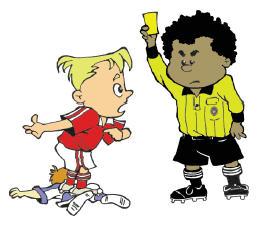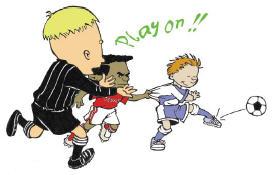
The referee's authority starts when the teams are warming up on the field and continues while play is stopped for any reason and through any tie-breaking procedures
The referee's authority ends when the game is completely over and the teams have left the field.

The Referee:
-
Enforces the Laws of the Game
-
Keeps the official time of the game
-
Stops play if there is a serious injury
-
Stops play if a player is guilty of a foul or misconduct
-
Prevents anyone from coming onto the field unless the referee says it is OK
-
Requires a player to leave the field if a player is bleeding or has blood on the uniform
-
Makes sure the field, the ball, and the player equipment are safe and legal
-
Suspends or terminates a match if needed
-
Provides the official report of the game






A referee can:
-
Require a coach or team official to leave the field if their behavior is not proper (a card is not shown)
-
Decide not to stop play even if there is a foul or misconduct if stopping play would help the team that committed the foul or misconduct (this is called "applying the advantage")
-
Decide not to call any foul or misconduct if the referee decides that the action is trifling (not important, does not have a serious effect on play)
-
Decide to let play continue if an injury is not serious
-
Caution a player or substitute by showing a yellow card
-
Send a player or a substitute from the field by showing a red card
-
Make decisions using information from an assistant referee


